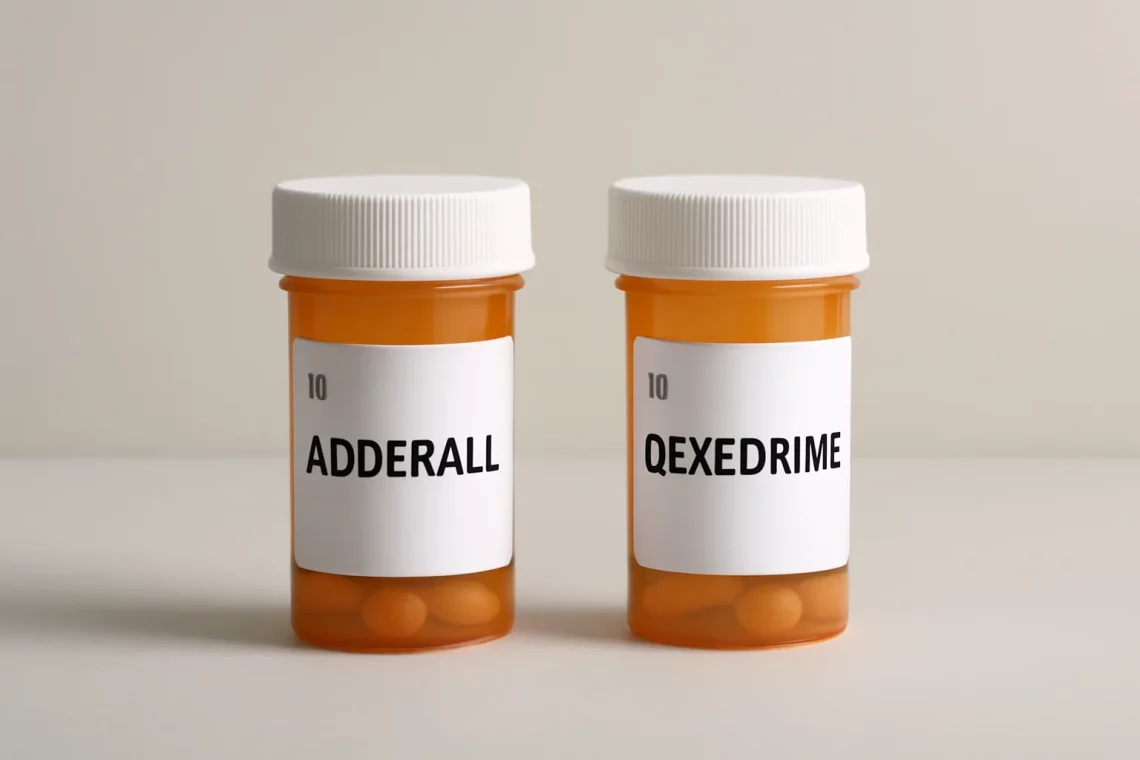
Adderall vs Dexedrine: Key Differences and Similarities Explained
Adderall and Dexedrine are two widely recognized medications primarily used to treat Attention Deficit Hyperactivity Disorder (ADHD) and narcolepsy. Both drugs belong to a class of medications known as stimulants, which work by increasing the levels of certain neurotransmitters in the brain, particularly dopamine and norepinephrine. This enhancement leads to improved focus, attention, and impulse control, making these medications effective for individuals struggling with these conditions.
Despite their similar uses, Adderall and Dexedrine have distinct differences in their formulations, active ingredients, and how they affect individuals. Understanding these differences is crucial for patients, caregivers, and healthcare providers when considering treatment options. With the rise in ADHD diagnoses and the increasing awareness of narcolepsy, the need for effective management strategies has never been more pronounced. Therefore, a detailed exploration of the similarities and differences between Adderall and Dexedrine can aid in making informed decisions regarding ADHD and narcolepsy treatment.
Understanding Adderall
Adderall is a combination medication that contains two active ingredients: amphetamine and dextroamphetamine. This unique blend allows Adderall to work effectively by targeting multiple pathways in the brain. The medication is available in both immediate-release and extended-release formulations, providing flexibility for patients based on their specific needs.
The immediate-release version typically lasts around four to six hours, making it suitable for individuals who require symptom management during specific times of the day, such as during school or work hours. On the other hand, the extended-release formulation delivers a more gradual release of the medication, allowing for a more sustained effect throughout the day. This can be beneficial for individuals who need consistent symptom control without the need for multiple doses.
Adderall is often prescribed for ADHD due to its efficacy in improving focus, attention span, and impulse control. Many individuals report significant improvements in their ability to concentrate, complete tasks, and manage their time effectively. Additionally, Adderall is sometimes used off-label for conditions such as depression and anxiety, although such uses should always be discussed with a healthcare professional.
However, like all medications, Adderall comes with potential side effects. Common side effects include increased heart rate, insomnia, dry mouth, and anxiety. It is essential for individuals considering Adderall to engage in a thorough discussion with their healthcare provider to weigh the potential benefits against the risks.
Diving into Dexedrine
Dexedrine, on the other hand, contains only dextroamphetamine as its active ingredient. This medication is primarily available in an immediate-release formulation, which means its effects can be felt relatively quickly after ingestion. Dexedrine is often prescribed for ADHD and narcolepsy, similar to Adderall, but its singular formulation can lead to different effects and side effects in users.
Due to its composition, Dexedrine tends to have a more straightforward mechanism of action. It primarily increases the levels of dopamine in the brain, which can lead to enhanced focus and alertness. Some individuals may find that they respond better to Dexedrine than to Adderall, as the absence of amphetamine may result in fewer side effects for certain patients.
The duration of effect for Dexedrine is typically shorter than that of Adderall’s extended-release formulation. This means that individuals may need to take Dexedrine more frequently throughout the day to maintain symptom control. However, those who prefer a more immediate and focused effect might find Dexedrine to be a more suitable option.
As with any stimulant medication, potential side effects exist. Commonly reported side effects of Dexedrine include insomnia, decreased appetite, and increased heart rate. Patients should always monitor their reactions to the medication and discuss any concerns with their healthcare provider to ensure proper management of their treatment plan.
Comparing Efficacy and Side Effects
When comparing Adderall and Dexedrine, it is essential to consider their efficacy and side effects, as these factors can significantly influence a patient’s treatment choice. Both medications are effective for managing symptoms of ADHD and narcolepsy, but individual responses can vary widely.
Studies have shown that both Adderall and Dexedrine are effective in improving attention and reducing impulsivity in individuals with ADHD. However, some studies suggest that Adderall may provide a slightly broader range of symptom control due to its combined formulation of amphetamine and dextroamphetamine. This could be a critical consideration for those who experience a wide array of symptoms associated with ADHD.
In terms of side effects, both medications share some commonalities, including insomnia, increased heart rate, and potential anxiety. Yet, individual responses can differ. Some users may find that one medication causes them to experience more severe side effects than the other. For instance, individuals sensitive to amphetamines may find that Adderall results in more pronounced side effects compared to Dexedrine.
Moreover, the potential for dependency and abuse is a critical aspect of both medications. As stimulants, they carry a risk of misuse, particularly in individuals with a history of substance abuse. Healthcare providers typically assess the risk factors when prescribing these medications and may opt for one over the other based on individual patient history.
Ultimately, the choice between Adderall and Dexedrine should be made collaboratively between patients and their healthcare providers, considering factors such as symptom severity, side effects, and the individual’s medical history.
Making an Informed Decision
Choosing between Adderall and Dexedrine can be a complex decision that requires careful consideration. Patients should engage in open dialogue with their healthcare providers to discuss their specific symptoms, medical history, and any concerns regarding medication.
First and foremost, it is vital to undergo a comprehensive evaluation to determine the appropriateness of stimulant medication. This evaluation may include psychological assessments, medical history, and discussions about lifestyle factors that could impact treatment effectiveness.
Once a decision has been made to pursue medication, monitoring is essential. Patients should maintain regular follow-ups with their healthcare provider to assess the medication’s effectiveness and any side effects experienced. This ongoing communication can lead to adjustments in dosage or even a switch to a different medication if necessary.
It is also crucial for patients and their families to educate themselves about ADHD and narcolepsy. Understanding the nature of these conditions, along with the available treatment options, empowers individuals to take an active role in their healthcare. Support groups and educational resources can provide valuable insights and shared experiences that enhance the management of these conditions.
In conclusion, while both Adderall and Dexedrine are effective options for managing ADHD and narcolepsy, the choice between them should be personalized. Each individual’s response to medication can vary widely, making it essential to tailor treatment to meet unique needs.
**Disclaimer: This article is not intended as medical advice. Always consult a qualified healthcare professional for medical concerns and before starting or changing any medication.**




